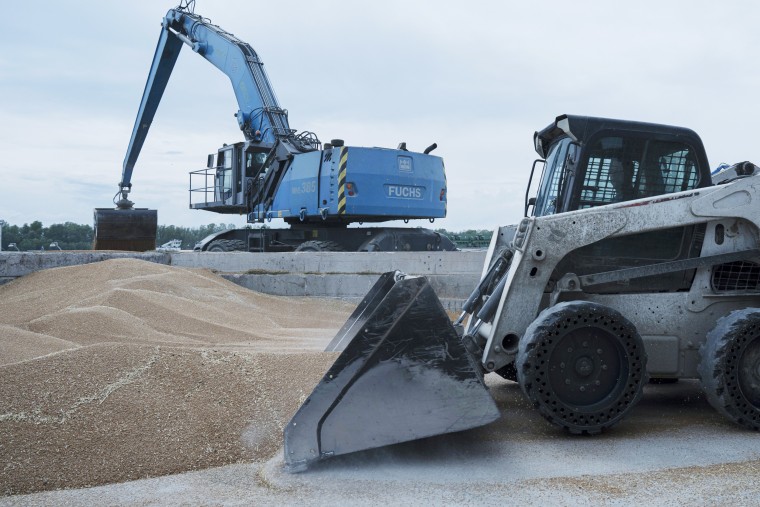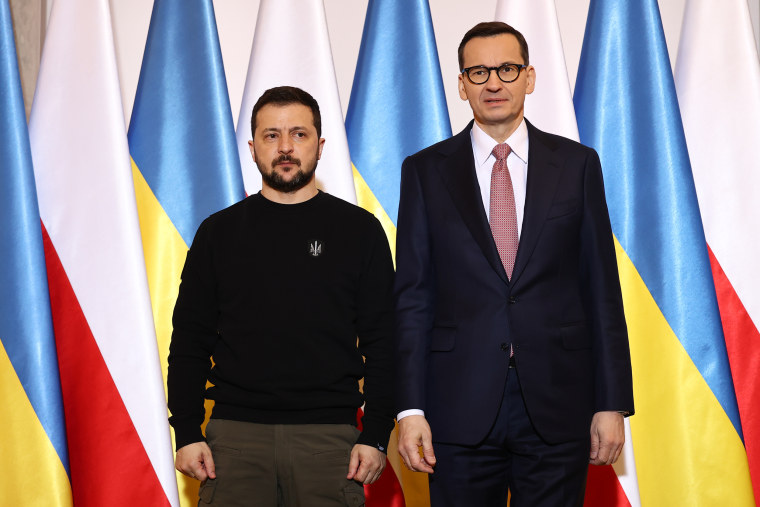Poland is no longer arming Ukraine as it is focusing on building up its own stocks of weapons, the prime minister said on Wednesday, as Warsaw’s stance toward Kyiv shifts just weeks before an election.
Poland is only carrying out previously agreed arms deliveries to Ukraine, a government spokesman said on Thursday, amid souring bilateral relations due to a grain dispute just weeks before a Polish parliamentary election.
Poland’s decision to extend a ban on Ukrainian grain imports has annoyed Kyiv. Poland has been seen until recently as one of Ukraine’s staunchest allies in its war with Russia.
Prime Minister Mateusz Morawiecki said on Wednesday that Poland, a NATO member, was no longer arming Ukraine and was focusing on rebuilding its own weapon stocks.

“I would like to inform you that Poland is only carrying out previously agreed supplies of ammunition and armaments,” government spokesman Piotr Muller told state-run news agency PAP on Thursday. “This includes those resulting from the contracts signed with Ukraine.”
Asked about Morawiecki’s comments on arms supplies, State Assets Minister Jacek Sasin said: “At the moment it is as the prime minister said, in the future we will see.”
Sasin said the row over grain imports did not mean Poland had ceased to back Ukraine against Russia but that Warsaw needed to replenish its own arms stockpiles.
“In this case, Polish interests come first,” he said. “We cannot disarm the Polish army, we cannot get rid of the weapons that are necessary for our security.”
“Where we could arrange for the transfer of weapons, we did it and we were very generous in this matter... here we have absolutely nothing to reproach ourselves with.”
Poland has supplied, among other weapons, T-72 and Leopard tanks, armored vehicles and howitzers to Ukraine since the Russian invasion on Feb. 24, 2022. Warsaw has not published a complete list of all the materiel it has given.
A U.S. official who recently visited Poland dismissed suggestions that Morawiecki’s comments were a sign of cracks in Western solidarity with Ukraine.
“We’re all human and there are moments of tension... But that doesn’t mean that there’s going to be some dramatic shift in alliance unity or even Poland’s fundamental position and determination to support Ukraine for as long as it takes,” said the official, who spoke on condition of anonymity.
Poland holds a parliamentary election on Oct. 15, and the ruling nationalist Law and Justice (PiS) party has come in for criticism from the far right for what it says is the government’s subservient attitude to Ukraine.
The Confederation party, which has given voice to anti-Ukrainian sentiments, is third in many polls and has emerged as a possible kingmaker. Analysts say PiS’s tougher rhetoric on Ukraine is a response to Confederation’s increasing popularity
Marek Swierczynski, a defense analyst at think-tank Polityka Insight said that while it was probably true that Poland currently had no more weapons to give to Ukraine, Morawiecki must have known that the timing of his comments meant they would land “like a grenade into a cesspit”.
“In my opinion it is more of an escalation of the campaign... to gain a few percent more of the anti-Ukrainian electorate in Poland,” he said.
